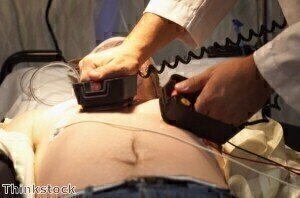-
 Drug found to reverse overgrown hearts and prevent failure from high blood pressure.
Drug found to reverse overgrown hearts and prevent failure from high blood pressure.
News
Drug reverses problems leading to heart failure
May 31 2011
The study, conducted by scientists at UT Southwestern Medical Center, found that a type of histone deacetylase (HDAC) inhibitor evaluated at clinical trials was shown to reverse the effects of autophagy in heart muscle cells of mice.
Autophagy is the process in which cells eat their own proteins when under stress in order to get much needed resources.
Scientists engineered mice with overactive autophagy and induced hypertrophy leading to heart failure and then gave the mice an HDAC inhibitor.
"The heart decreased back to near its normal size, and heart function that had previously been declining went back to normal," explained Dr Joseph Hill, chief of cardiology and director of the Harry S. Moss Heart Center at UT Southwestern and senior author of the study.
"That is a powerful observation where disease regression, not just disease prevention, was seen," he stressed.
Dr Hill said that the discovery was "the Holy Grail" for a physician-scientist.
Digital Edition
Lab Asia Dec 2025
December 2025
Chromatography Articles- Cutting-edge sample preparation tools help laboratories to stay ahead of the curveMass Spectrometry & Spectroscopy Articles- Unlocking the complexity of metabolomics: Pushi...
View all digital editions
Events
Jan 21 2026 Tokyo, Japan
Jan 28 2026 Tokyo, Japan
Jan 29 2026 New Delhi, India
Feb 07 2026 Boston, MA, USA
Asia Pharma Expo/Asia Lab Expo
Feb 12 2026 Dhaka, Bangladesh


















